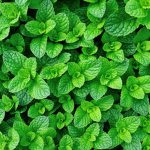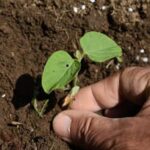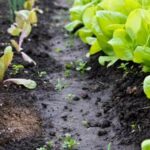Is hardwood bark mulch good for vegetable gardens? Mulch plays a crucial role in maintaining the health and vitality of vegetable gardens. It helps retain moisture, suppresses weeds, and adds essential nutrients to the soil. In this article, we will delve into the benefits of using hardwood bark mulch specifically for vegetable gardens and how it contributes to the overall well-being of your plants.
When it comes to vegetable gardening, choosing the right type of mulch is essential for promoting optimal growth and yield. While there are various types of mulch available, hardwood bark mulch stands out as a popular choice due to its unique advantages. From nutrient retention to weed suppression, hardwood bark mulch offers several benefits that directly impact the health and productivity of your vegetable garden.
One specific advantage of using hardwood bark mulch in vegetable gardens is its ability to retain essential nutrients in the soil. This ensures that your plants have access to the vital elements they need for healthy growth. Additionally, hardwood bark mulch acts as an insulator for the soil, helping maintain consistent moisture levels – a key factor in supporting robust plant development.
Types of Mulch
When it comes to choosing the right mulch for your vegetable garden, there are several options available, each with its own set of benefits and drawbacks. Understanding the different types of mulch can help you make an informed decision about which is best suited to your gardening needs.
Organic Mulch
Organic mulches, such as hardwood bark mulch, straw, grass clippings, and compost, are derived from natural materials and offer a range of benefits for vegetable gardens. These types of mulch gradually decompose over time, enriching the soil with essential nutrients and improving overall soil structure. Additionally, organic mulches provide insulation to the soil, retain moisture, and suppress weed growth.
Synthetic Mulch
Synthetic mulches, such as plastic or rubber mulch, are non-biodegradable materials that offer excellent weed suppression and moisture retention. However, they do not contribute to soil health in the same way that organic mulches do. While synthetic mulches may be effective in certain scenarios, they are not as environmentally friendly as organic options.
Inorganic Mulch
Inorganic mulches include gravel, stones, and landscape fabric. While these materials are long-lasting and low-maintenance, they do not provide any nutritional benefit to the soil. However, inorganic mulches are effective at preventing erosion and maintaining soil temperature.
Ultimately, the type of mulch you choose for your vegetable garden will depend on your specific gardening goals and preferences. However, hardwood bark mulch is a popular choice for many gardeners due to its numerous benefits for vegetable growth.
Benefits of Hardwood Bark Mulch
Hardwood bark mulch is a popular choice for vegetable gardens due to its numerous benefits. Here are some specific advantages of using hardwood bark mulch in vegetable gardens:
1. Nutrient Retention: One of the key benefits of hardwood bark mulch is its ability to retain essential nutrients in the soil. As the mulch decomposes, it releases nutrients into the soil, providing a natural and effective way to nourish vegetable plants. This can lead to improved plant health and better overall yield.
2. Soil Insulation: Hardwood bark mulch acts as a natural insulator for the soil, helping to maintain consistent moisture levels. By providing a protective layer over the soil, it prevents rapid evaporation and helps regulate temperature fluctuations, creating an optimal environment for vegetable growth.
3. Weed Suppression: In addition to its nutrient retention and soil insulation properties, hardwood bark mulch also plays a role in suppressing weed growth. The thick layer of mulch inhibits weed seeds from germinating and blocks out sunlight, reducing the need for frequent weeding in vegetable gardens.
Incorporating hardwood bark mulch into your vegetable garden can have positive effects on the overall health and productivity of your plants. Consider these specific benefits when deciding on the type of mulch to use in your vegetable garden for optimal results.
Nutrient Retention
Hardwood bark mulch is an excellent option for retaining essential nutrients in vegetable gardens. This type of mulch consists of small pieces of wood from hardwood trees, which gradually break down and release nutrients into the soil. One of the key advantages of using hardwood bark mulch is its ability to enhance the nutrient content of the soil, providing a healthy environment for vegetables to grow.
When hardwood bark mulch decomposes, it adds organic matter to the soil, enriching it with valuable nutrients such as nitrogen, phosphorus, and potassium. These nutrients are essential for robust plant growth and overall health. As a result, using hardwood bark mulch can help ensure that your vegetable garden has a steady supply of vital nutrients, promoting strong and vibrant plant growth throughout the season.
In addition to enhancing nutrient levels in the soil, hardwood bark mulch also contributes to improving soil structure and fertility. Its ability to break down slowly means that it continues to release nutrients over an extended period, providing long-term benefits for vegetable plants. Overall, incorporating hardwood bark mulch into your vegetable garden is an effective way to boost nutrient retention and create a thriving environment for your crops.
| Advantages | Benefits |
|---|---|
| Enhances nutrient content | Promotes strong plant growth |
| Improves soil structure | Provides long-term nutrient release |
Soil Insulation
Hardwood bark mulch is a popular choice for vegetable gardens due to its effectiveness in insulating the soil and maintaining moisture levels. This type of mulch is beneficial in creating a protective barrier over the soil, preventing moisture loss through evaporation and minimizing temperature fluctuations. The insulation properties of hardwood bark mulch help in creating a stable environment for vegetable growth, especially during extreme weather conditions.
One of the key benefits of using hardwood bark mulch in vegetable gardens is its ability to regulate soil temperature. During hot weather, the mulch acts as a shield, preventing excessive heat from reaching the soil and causing it to dry out.
Similarly, during colder temperatures, the mulch provides an extra layer of protection, helping to maintain warmer soil conditions that are favorable for plant growth. This is particularly useful for vegetables that are sensitive to temperature changes, ensuring a more consistent and stable environment for their development.
In addition to its insulating properties, hardwood bark mulch also plays a crucial role in moisture retention. By forming a protective layer over the soil, the mulch helps to reduce water evaporation, allowing the roots of vegetables to access adequate moisture for their growth and development.
This is especially important during dry periods or in regions with limited rainfall, as it helps to conserve water and minimize the need for frequent irrigation. Overall, hardwood bark mulch contributes significantly to maintaining optimal moisture levels in vegetable gardens, promoting healthier and more robust plant growth.
| Benefit | Explanation |
|---|---|
| Temperature Regulation | The insulation properties of hardwood bark mulch help regulate soil temperature by preventing excessive heat or cold from reaching the soil. |
| Moisture Retention | The protective barrier created by hardwood bark mulch reduces water evaporation from the soil, ensuring adequate moisture for vegetable growth. |
Weed Suppression
Hardwood bark mulch is an excellent choice for vegetable gardens when it comes to weed suppression. It helps in creating a barrier on the soil surface, preventing sunlight from reaching weed seeds and inhibiting their growth. This natural method of weed control is not only effective but also environmentally friendly, as it eliminates the need for harmful chemical herbicides.
Here are some specific ways in which hardwood bark mulch helps in suppressing weed growth in vegetable gardens:
- Physical Barrier: Hardwood bark mulch forms a thick layer on the soil surface, making it difficult for weeds to push through and establish themselves.
- Moisture Retention: By insulating the soil, hardwood bark mulch helps in maintaining optimal moisture levels, which creates unfavorable conditions for weed growth.
- Decomposition: As hardwood bark mulch breaks down over time, it adds organic matter to the soil. This process can inhibit weed growth by altering the structure of the soil and making it less conducive for weeds to thrive.
In order to maximize the benefits of hardwood bark mulch for weed suppression, it is important to apply a sufficient layer of mulch (typically around 2-4 inches) and replenish it as needed. Regularly inspecting the vegetable garden for any signs of weed growth and adding more mulch as necessary will help in maintaining a weed-free environment for optimal vegetable growth.
Overall, using hardwood bark mulch is a natural and effective way to keep weeds at bay in vegetable gardens while promoting healthy plant development.
Application and Maintenance
Application of Hardwood Bark Mulch
When applying hardwood bark mulch to your vegetable garden, it is important to first prepare the soil by removing any weeds and debris. Once the soil is ready, spread a layer of hardwood bark mulch around the base of your vegetable plants, making sure to leave a small gap between the mulch and the stems of the plants to prevent rot.
Maintenance Tips for Hardwood Bark Mulch
To ensure that your hardwood bark mulch continues to benefit your vegetable garden, regular maintenance is essential. One important tip is to periodically check the depth of the mulch layer and replenish it as needed to maintain a thickness of around 2-4 inches. This will help in retaining moisture and insulating the soil effectively.
Another maintenance tip is to turn over the hardwood bark mulch occasionally with a rake or garden fork to prevent matting and allow air and water to penetrate the soil. Additionally, keep an eye out for any signs of mold or mildew forming on the mulch, as this could indicate excess moisture levels. If mold or mildew is present, simply turn over the affected areas and allow them to dry out.
Overall, when properly applied and maintained, hardwood bark mulch can significantly benefit your vegetable garden by promoting healthy plant growth, reducing weed growth, and improving soil quality.
By following these application and maintenance tips, you can make the most out of using hardwood bark mulch in your vegetable garden.
Conclusion
In conclusion, it is evident that hardwood bark mulch is indeed good for vegetable gardens for several reasons. With its ability to retain essential nutrients, insulate the soil, and prevent weed growth, hardwood bark mulch proves to be a valuable addition to any vegetable garden. By maintaining moisture levels and providing a protective layer over the soil, this type of mulch creates an optimal environment for vegetables to thrive.
Furthermore, the benefits of using hardwood bark mulch extend beyond just the immediate impact on vegetable growth. The long-term effects of improved soil quality and reduced maintenance through weed suppression make it a cost-effective and sustainable option for gardeners. Additionally, its natural appearance adds aesthetic value to the garden, making it an attractive choice for both functional and visual purposes.
Overall, choosing hardwood bark mulch for your vegetable garden can significantly improve plant health and yield. Its many benefits make it a worthwhile investment for any gardener looking to optimize their vegetable growing experience. Whether you are a beginner or experienced gardener, incorporating hardwood bark mulch into your garden routine is sure to have a positive impact on the overall success of your vegetable crops.
Frequently Asked Questions
Can I Use Hardwood Mulch in My Vegetable Garden?
Hardwood mulch can be used in a vegetable garden, but it is important to consider the acidity of the mulch and its effect on the soil. Hardwood mulch that is too acidic can negatively impact the pH balance of the soil, so it’s essential to choose a type that won’t harm your vegetable garden.
What Is the Best Kind of Mulch to Put in a Vegetable Garden?
The best kind of mulch to put in a vegetable garden depends on various factors such as climate, soil type, and personal preference. Organic mulches like straw, grass clippings, or shredded leaves are popular choices because they break down over time, adding nutrients to the soil. Additionally, organic mulches can help with moisture retention and weed control.
Is Black Wood Mulch Safe for Vegetable Garden?
Whether black wood mulch is safe for a vegetable garden depends on its composition. Some black-dyed mulches may contain chemicals or toxins that could potentially leach into the soil and affect plant growth.
It’s crucial to research the specific type of black wood mulch being considered before using it in a vegetable garden to ensure it is safe for plants and soil health.

If you’re looking to get into vegetable gardening, or are just looking for some tips on how to make your current garden better, then you’ve come to the right place! My name is Ethel and I have been gardening for years. In this blog, I’m going to share with you some of my best tips on how to create a successful vegetable garden.





